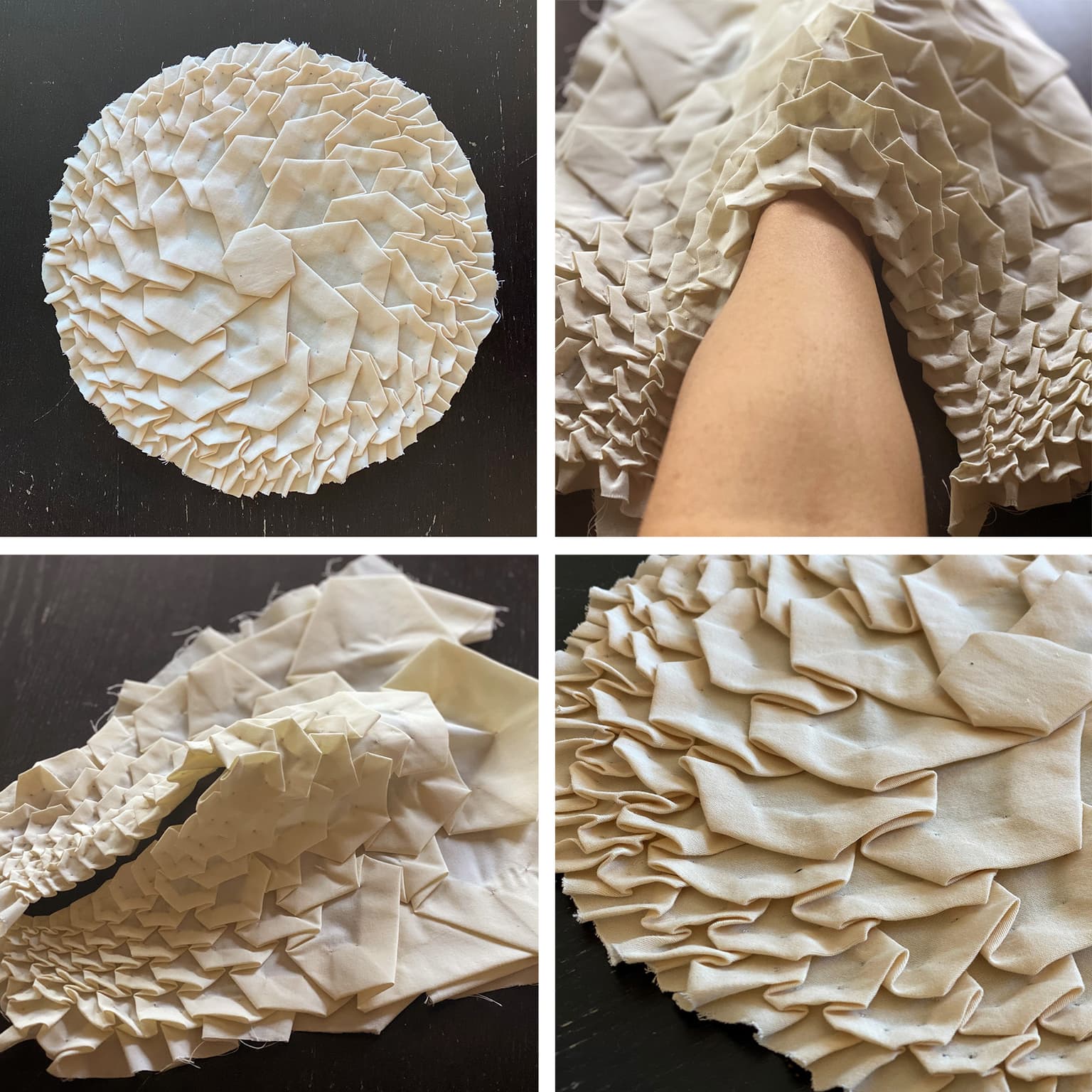Jiangmei Wu
Artists
Jiangmei Wu
Associate Professor
Eskenazi School of Art, Architecture, and Design, Indiana University
Bloomington, Indiana, USA
Statement
I am intrigued by these naturally occurring folds and how they can be analyzed in order to understand nature. Unfolding a folded design reveals a patterned map of creating and generating. And this map, also called a ‘crease pattern,’ is often the result of counterintuitive deliberation and calculation based on mathematical understanding. While it is difficult to describe the folded form through the visual characteristics of the folds on this map, it is more difficult to reverse engineer and come up with logical patterns of folds that can then be folded into desirable forms. I often employ mathematical understanding and computational algorithms in generating a map of folds.
Artworks
